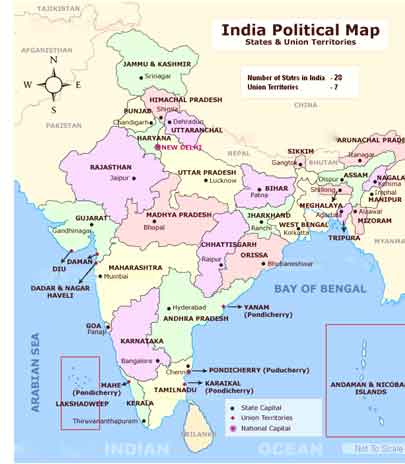(HOT) UPSC Current Affairs 2025 PDF
NEW! The Gist (NOV-2025) | E-BOOKS
(IGP) GS Paper 1 - Indian Polity & Governance - "Inter-State Council"
Integrated Guidance Programme of General Studies for IAS (Pre)
Subject - Indian Polity & Governance
Chapter : Inter-State Council
Inter-State Council:
The Inter-State Council was set up under Article-263 of the Constitution of India by the President in 1990.

Art. 263 as follows:
If at any time it appears to the President that the public interests would be served by the establishment of a Council charged with the duty of-
- inquiring into and advising upon disputes which may have arisen between States;
- investigating and discussing subjects in which some or all of the States, or the Union and one or more of the States, have a common interest; or
- making recommendations upon any such subject and, in particular, recommendations for the better co-ordination of policy and action with respect to that subject, it shall be lawful for the President by order to establish such a Council, and to define the nature of the duties to be performed by it and its organisation and procedure.
Composition of ISC:
Prime Minister is the head of the ISC and the composition includes
- six Ministers of Cabinet rank in the Union Council of Ministers to be nominated by the Prime Minister
- two Ministers of Cabinet rank in the Union Council of Ministers to be nominated by the Prime Minister as permanent invitees.
- Chief Ministers of all States
- Chief Ministers of Union territories having Legislative Assemblies
- Administrators of Union territories not having Legislative Assemblies
- Governors of States under President’s Rule
For Detail Description, Analysis and More MCQs of the Chapter Buy this Study Notes:
Zonal Councils:
- The idea of creation of Zonal Councils was mooted by the first Prime Minister of India, Pandit Jawahar Lal Nehru in 1956 when during the course of debate on the report of the States Re-organisation Commission.
- He suggested that the States proposed to be reorganised may be grouped into four or five zones having an Advisory Council “to develop cooperative working” among these States.
Centre’s of Zonal Councils:
The Northern Zonal Council, comprising the States of Haryana, Himachal Pradesh, Jammu & Kashmir, Punjab, Rajasthan, NCT of Delhi and U.T of Chandigarh;
- The Central Zonal Council, comprising the States of Chhatisgarh, Uttaranchal, Uttar Pradesh and Madhya Pradesh;
- The Eastern Zonal Council, comprising the States of Bihar, Jharkhand, Orissa, Sikkimand West Bengal;
- The Western Zonal Council, comprising the States of Goa, Gujarat, Maharashtra and the Union Territories of Daman & Diu and Dadra & Nagar Haveli; and
- The Southern Zonal Council, comprising the States of Andhra Pradesh, Karnataka, Kerala, Tamil Nadu and the Union Territory of Pondicherry.
Composition of ZC:
The Zonal Council for each zone consists of the following members
- the Chief Minister of each of the States included in the zone and two other Ministers of each such State nominated by the Governor;
- where any Union Territory is included in the zone, two members from each such territory nominated by the President;
Further the Zonal Council for each zone has the following persons as Advisers to assist the Council in the performance of its duties
- One person nominated by the Planning Commission
- Chief Secretaries of the States included in the Zone
- Development Commissioners of States included, in the zone.
The main objectives of setting up of Zonal Councils are as under:-
- National integration
- Balancing regionalism with federalism
- Enabling the Centre and the States to co-operate and exchange ideas and experiences; and
- Establishing a climate of co-operation amongst the States for successful and speedy execution of development projects.
For Detail Description, Analysis and More MCQs of the Chapter Buy this Study Notes:

